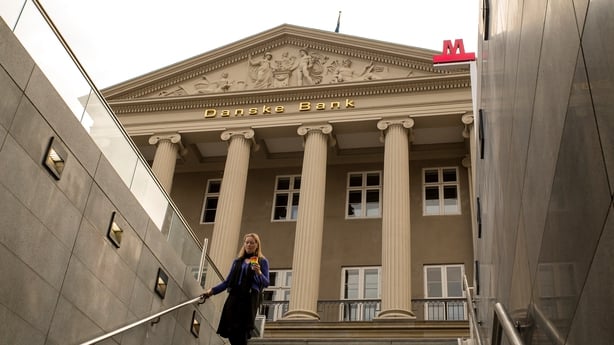Danske Bank's deepening money laundering scandal dragged its shares to a four-year low today as Denmark's biggest bank sought to calm investors about the impact of a US criminal investigation into its Estonian branch.
The involvement of the US Department of Justice in an inquiry into alleged money laundering at its Estonian branch is very different to the case of Latvia's failed ABLV, Danske Bank's interim chief financial officer Morten Mosegaard said.
US authorities in February accused ABLV of covering up money laundering, leading to the Latvian bank being denied dollar funding after the US Treasury proposed invoking a section of the USA Patriot Act.
This resulted in the bank's swift collapse.
"It's very difficult to see any comparison between the two cases," Mosegaard told Reuters, adding that Danske Bank had long since closed its activities in Estonia.
Last month Danske Bank said that payments totalling €200 billion, many of which were "suspicious", had moved through the branch between 2007 and 2015.
Mosegaard's comments follow the publication of a letter from US investor Bill Browder to the US Treasury.
Browder asked the US Treasury to investigate Danske Bank and to undertake steps to consider designating it for special measures under the USA Patriot Act, which was used in the ABLV case.
Browder, whose complaints have led to investigations by Danish and Estonian prosecutors, confirmed that he had sent the letter on Septe,ber 24, after Danske Bank's disclosure on Thursday of the DOJ investigation.
Mosegaard declined to comment on Browder's letter.
But when asked whether he expected the US authorities to apply the same sanctions on Danske Bank as they had on ABLV, he said: "I don't anticipate that. We have a constructive dialogue with the authorities."
"We are in a very early phase of the dialogue with the US authorities so it's very difficult to speculate on the outcome," Mosegaard said, without giving further details.

Mosegaard said Danske Bank was working with a "solid network of correspondent banks" which enable it to access dollars.
"We see no sign that we will not be able to handle transactions going forward in cooperation with our correspondent banks," he said.
Earlier the Financial Times reported that the bank had executed up to €8.5 billion of so-called mirror trades for Russian customers in 2013, which made the bank €10m.
This raised concerns about a significant US penalty and hit Danske Bank's already battered shares.
Deutsche Bank was previously hit by a $630m fine from authorities in the US and the UK for using mirror trades to allegedly launder Russian money.
In another blow to Danske Bank, Credit Suisse today downgraded it to 'neutral' from 'outperform' and cut its target price to 199 Danish crowns from 244 crowns.
"The investment case and key reason for buying Danske and taking anti-money-laundering risk is gone as buybacks no longer support shares," Credit Suisse said, with reference to the Danish bank's decision to end a share buyback programme to bolster its capital as a result of the scandal.

